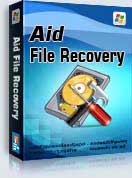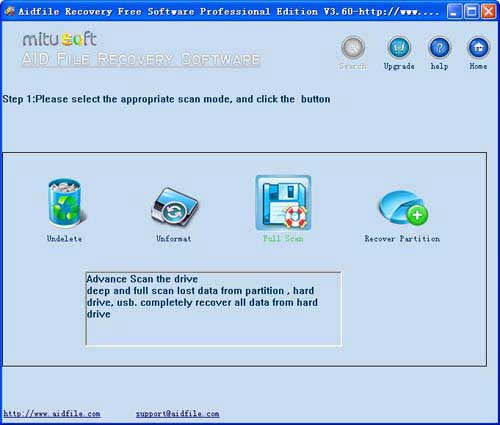Recovering Data from a Dead HDD Recognized by Bios but not OS repair tool fix to do data recovery, best file Recovery software help you recover MS word,excel, pictures, music, video files from Recovering Data from a Dead HDD Recognized by Bios but not OS
Use "unformat" to recover formatted drive for " Recovering Data from a Dead HDD Recognized by Bios but not OS" after quick format,full format,accidentally formatted,reformatting,High-level formatting,Low-level formatting.
Use "recover partition" to recover files - Recovering Data from a Dead HDD Recognized by Bios but not OS partition,lost partition,changed ,damaged partition.And if the size or position of partition is changed by format,It can not recover with "unformat"so you can use "recover partition"mode.
Use "undelete" to recover deleted files - Recovering Data from a Dead HDD Recognized by Bios but not OS after Virus attack,Recycle bin clear,disk cleanup,Press shift del by mistake,permanently empty recycle bin,shift delete ,accidentally deleted by a mistake.
Use "Full Scan" to recover data - Recovering Data from a Dead HDD Recognized by Bios but not OS which can not be found with "undelete" and "unformat" and "recover partition",after showing an error,display as raw file system,unformatted,unknown partition,unpartitioned,needs to be formatted,or the file system is not exfat,not fat32,not ntfs.
"Recovering Data from a Dead HDD Recognized by Bios but not OS ", The result is that I have no extant copy of any of the data that was contained on this 2TB Seagate drive. (Which was mostly full.) It is currently in a Media Server build running Ubuntu 16.04, on a Supermicro X11SSH-LN4F motherboard, a Xenon E3-1230 v5 processor, and 32GB of ECC RAM. Both the internal NVME Ubuntu installation and the Ubuntu Live USB I tried using are unable to detect the drive in disks or in gparted, while running lsblk in the terminal fails to list it as well. I swapped all the cables between the various drives in the machine and each time the rest of the drives are detected without incident and the problem drive goes unlisted. It was working perfectly fine a few days ago, however I turned the server off one night for the first time in a few weeks and then the next morning when turning the computer on Ubuntu failed to mount it, and simply opted not to list its existence in every location it lists drives and partitions. The drive in question is formatted for Windows as an NTFS drive. The plan up until I discovered my corrupted backups predicament was to replace it with a new higher capacity drive I have on hand as part of a Zraid that would have constituted my home media server. Once I discovered the backup issue I postponed those plans but then almost immediately the drive failed.
Aidfile Recovery Software Keyfeature
support FAT32 EXFAT NTFS and RAW file system
support Win32 (32 bits) and Win64 (64 bits)
Support Windows XP, Windows 8, Windows 8.1,Windows Vista, Windows 2003, 2008, 2012,Windows 10,Windows 7 .
Desktop & laptops Ultrabook:HP Pavilion,HP Compa,Alienware Alpha,Lenovo ThinkCentre,Lenovo IdeaCentre,Dell Inspiron,Dell XPS,Sony VAIO,Acer Aspire,Asus Transformer,Dell Latitude,Samsung Ativ Book,Asus VivoBook,HP Envy,Lenovo IBM ThinkPad,Lenovo IdeaPad Yoga,Microsoft Surface,Toshiba Satellite
MS Office document (Word, Excel, PowerPoint, Outlook) types (doc, docx, ppt, pptx, xls, xlsx, pst, etc.),photos (JPG, PNG, ICON, TIF, BMP, RAF, CR2, etc.), videos and audios (MPG, MP4, MP3, MTS, M2TS, 3GP, AVI, MOV, RM, RMVB, etc.), compressed files (rar, zip, etc.), PE files (exe, dll, lib, etc.) and so on.

